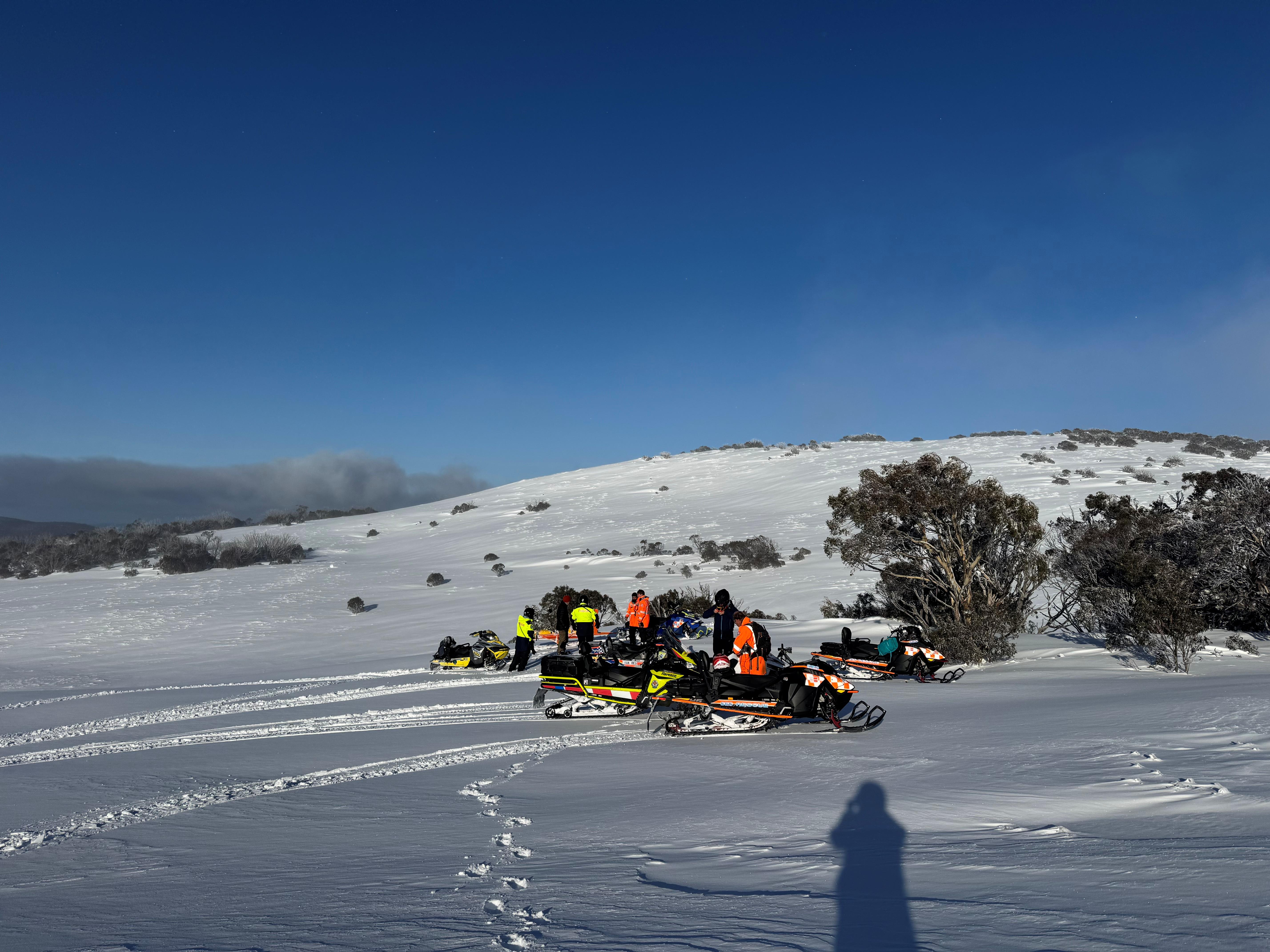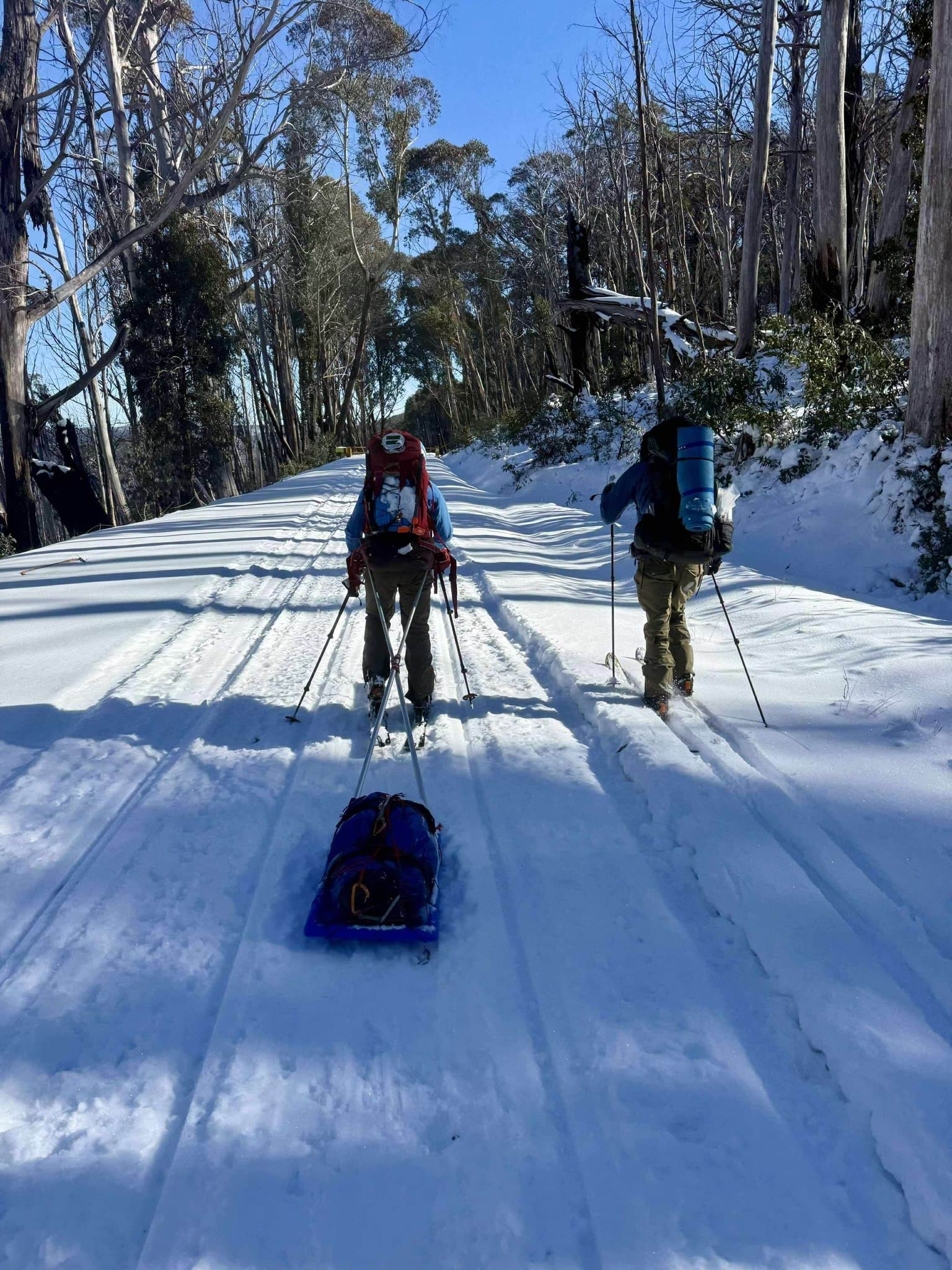Ambulance Victoria (AV) paramedics urge snowfield visitors to plan ahead and be prepared for emergencies after responding to skiers in the Bogong High Plains.
Friends Michelle McRae and Jon Miller were recently rescued by a team effort from AV, Victoria Police and SES, after unexpected gear failures left them stuck overnight in blizzard conditions while on a ski touring expedition.
"We were well-equipped for the possibility of extreme conditions and being in the elements longer than expected," Michelle said.
"We had good quality gear, solid navigation and location capacity, power banks to charge our phones and torches, and appropriate equipment for snow camping such as a shovel, ice axe, footwear spikes and more.
"We're both experienced in wilderness expeditions, so we knew the tasks that needed to be done to keep safe when conditions worsened - like preventing snow build up on and around our tent, and ensuring the tent was adequately vented."
AV Alpine Senior Team Manager Jonathan Hopkins said the rescue was a great example of skiers being ready for an emergency in the snow and helped ensure everyone's safety during the blizzard.
"With Michelle and Jon well-equipped to endure the night in severe conditions, it prevented emergency services from conducting a high-risk rescue," he said.
"The pair could camp out overnight and wait for the extreme weather to pass - rescued the following day in much better conditions.
"It's a timely reminder to always plan for the worst-case scenario."

Michelle and Jon were uninjured in the ordeal but said it was a relief when they saw emergency services.
"Our plan had been to ski to Ropers Hut, spend the night there and ski back on the Sunday," Jon said.
"But on the way out, we both had significant and unexpected gear failures. It was getting late, so we opted to stay in a closer hut and head back the next day."
However, the next morning, the duo was greeted by the incoming blizzard, which was hitting far earlier than forecast.
"Our gear failures made it too difficult to ski out and the visibility was getting worse, so we couldn't walk either. We stopped and called for help early, hoping rescuers could reach us before dark," Jon said.
"We pitched Michelle's tent while we waited for rescue crews."
Michelle and Jon both carried personal locator beacons (PLBs) but were able to use a phone to call for help, informing the Triple Zero (000) call taker of their location a number of ways, including their coordinates, via the What3Words app and a photo with their location pinpointed on a topographical map.
When rescuers told Michelle and Jon they would have to camp out until the next day, the pair were confident they had the equipment to survive the night.
"Having good quality gear was a huge help. We both had good sleeping bags, mats, lots of waterproofs, battery packs to charge our phones and Michelle had a very good tent," Jon said.
"She's very experienced and that's one of the other best things you can do - go out with somebody more experienced and lean on their knowledge."

Michelle said her top tip for people planning a trip in an alpine region was to know your limits.
"Before heading out on an expedition, do some basic courses and knowledge acquisition, build up slowly, and plan trips in line with your skills and experience," she said.
"Make sure your group communicate limitations prior to the trip and always develop a clear trip plan."
If you're heading to the mountains during the rest of this year's snow season, there are steps you can take to keep safe:
- Know your limits and plan for the unexpected
- Carry safety gear, including a charged phone and navigation equipment
- Tell someone where you're going and when you'll be back
- Access can take time - so pack like help's not just minutes away
If you do need help, make it easier for emergency crews to reach you:
- Download the free Emergency Plus app or What3Words app, which help pinpoint your exact location - essential in vast or unmarked areas
- Have a visible marker if possible, such as a brightly coloured item of clothing or pack
- Stay put once you've called for help, unless directed otherwise by Triple Zero (000)
- Keep your phone on and conserve battery, so paramedics can contact you or locate you via emergency systems






